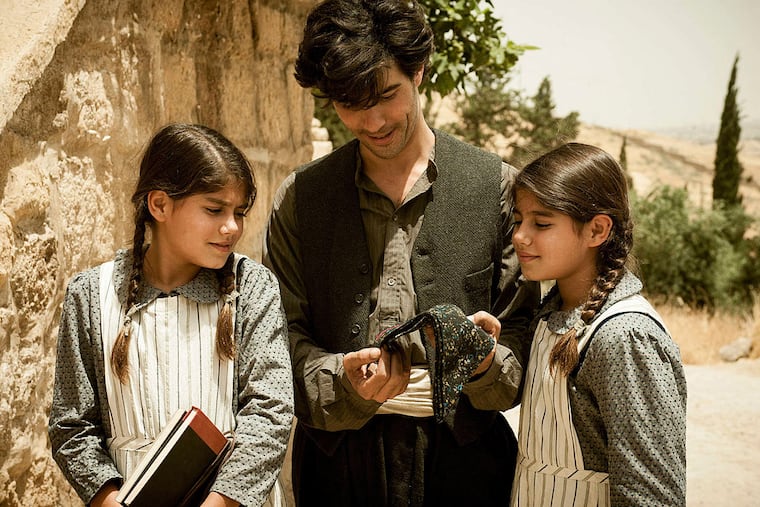Review: Armenian genocide saga 'The Cut' never connects
The Armenian genocide has been shrouded in silence for a century. Undertaken in 1915 by the Ottoman Empire, the systematic extermination of the predominantly Christian ethnic group led to 1.5 million deaths.

The Armenian genocide has been shrouded in silence for a century. Undertaken in 1915 by the Ottoman Empire, the systematic extermination of the predominantly Christian ethnic group led to 1.5 million deaths.
While the genocide was depicted by Hollywood as early as 1919 in Ravished Armenia, it has been ignored by filmmakers, with the notable exception of Atom Egoyan's Ararat (2002).
It was welcome news when one of Europe's leading cinematic lights, Turkish German director Fatih Akin (Head On, The Edge of Heaven), decided to tackle the subject with The Cut, a breathtaking 138-minute saga about a man who survives the slaughter only to trek across three continents in search of his daughters.
Filled with a bewildering series of adventures, colorful characters, hair-raising violence, and sublime references to Charlie Chaplin's films, The Cut is as uneven as it is exhausting to watch.
Acclaimed Algerian French actor Tahar Rahim (A Prophet, The Past) leads an international cast as Nazaret Manoogian, an Armenian blacksmith who lives in southeast Turkey with his wife, Rakel (Hindi Zahra), and their twins, Arsinée (Zein Fakhoury) and Lucinée (Dina Fakhoury).
It's 1915. Turkey, one of Germany's allies, is hurling itself into the chaos of war. Nazaret, who maintains that the Turks have always treated him well, is conscripted to serve in the military as an unpaid laborer. Beaten, abused, and starved, the workers are executed the moment they finish their project.
Miraculously, Nazaret survives. The soldier tasked with cutting his throat - they won't waste bullets on Armenians - only manages to sever his vocal cords.
Reduced to a homeless, penniless refugee who also has been robbed of the power of speech, Nazaret takes to the road to find his family. Like the Stations of the Cross, each stop on his journey takes him deeper into pain and humiliation.
He visits a refugee camp littered with bodies - Armenians were dumped there to starve. There he sees his sister-in-law, who begs him to finish her off.
Later, when he hears his daughters may be alive, Nazaret travels through the Middle East to Cuba and finally America.
The Cut is a film one must experience. Yet it is riddled with problems. It was shot in English and later redubbed by Armenian speakers, which gives the dialogue a stilted feeling. Despite its visual beauty and Rahim's extraordinary, and silent, performance, the film never quite manages to connect on an emotional level. The Cut portrays remarkable, gut-wrenching events and touches on issues that remain raw to this day, yet its subject matter seems ill-served by the visual tone, which is strangely distant, dispassionate.
215-854-2736
The Cut **1/2 (out of four stars)
StartText
Directed by Fatih Akin. With Tahar Rahim, Simon Abkarian, Hindi Zahra, Zein Fakhoury, Dina Fakhoury. Distributed by Strand Releasing.
In Armenian, Turkish, Arabic, and Spanish with English subtitles.
Running time: 2 hours, 18 mins.
Parent's guide: Not rated (violence, profanity, sexual violence).
Playing at: Ritz at the Bourse.
EndText